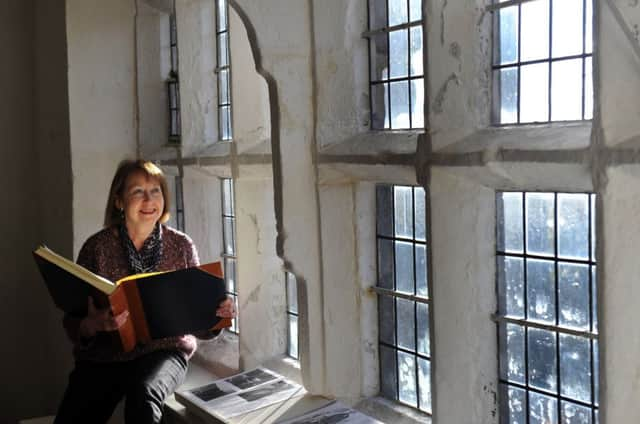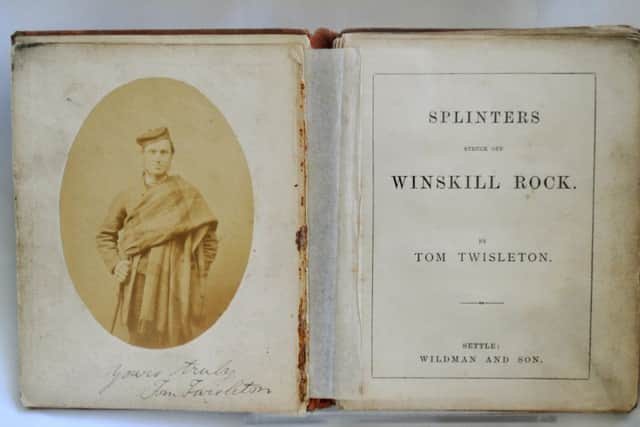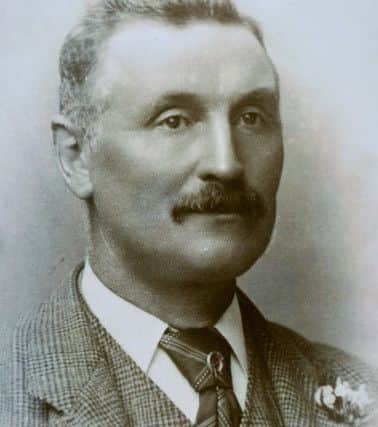Tom Twisleton and the lost language of the Dales


The folklore of Tom Twisleton, a poet and temperance campaigner famous from Gargrave to Giggleswick but nowhere else, is recalled still by the elders of Wharfedale. But the story of the man himself has, until now, been neglected.
“Some of the older folk here remember being read his poems as a child,” said Hazel Richardson, a heritage officer in Settle, who is helping to organise a Twisleton celebration tomorrow at the Museum of North Craven Life, to mark the 100th anniversary of his death.
Advertisement
Hide AdAdvertisement
Hide Ad“But his volumes were published in the 1860s, so it’s reasonable to say he’s a forgotten figure, except by his family.”


Some of Twisleton’s descendants will see his verse brought back to life tomorrow, with a reading in their original voice on a CD, spoken by a few of the 100 or so people still conversant with the old Dales tongue.
A grant of £50,000 from the Heritage Lottery Fund has financed the endeavour, which will also see a poetry competition for children from local schools.
“When we started the project I was surprised at how many people contacted me,” Ms Richardson said. “I think locally, around Settle and Malham and the local villages, these books were actually very popular.”
Advertisement
Hide AdAdvertisement
Hide AdTwisleton wrote about subjects he knew well, and none more so than the demon drink.


“He wrote poetry projecting his temperate views of life,” Ms Richardson said. “He was very much into persuading people not to waste their hard-earned money on alcohol in the pubs of Settle, but to save it for food.”
Twisleton’s signature piece was a poem about the Tuesday market day - a tradition that continues in Settle today - and the “stupefied glance” of a woman he spotted there.
“She’d ivvry appearance o’ being a sot,” he wrote, “For she couldn’t walk streight, nor stand steady o’ t’ spot.”
Advertisement
Hide AdAdvertisement
Hide AdThe poem, which has the prosaic title Lines Composed On Seeing A Woman Intoxicated In Settle Streets On A Market Day, ends with a timely warning to any men of the town who may be considering “takkin’ a wife”.


“Don’t gang huntin’ about efter beauty or brass, But fix on a modest an’ sensible lass,” Twisleton writes.
His verse is alive with words little heard outside Wharfedale and even there not for generations. A piggin was a small pail, jimmers were hinges and a mack-weight a small candle. A heck was a rack for hay, and anyone sounding hoarse was said to be roopy.
“People travelled very little in the Dales,” Ms Richardson said. “These words would have been used only in a very small area.”
Advertisement
Hide AdAdvertisement
Hide AdAnother poem, Lile Bobby, was popular with parents reading to their children. It was written by Twisleton about his son, Robert, whose grandchildren will be at tomorrow’s celebration. The word Lile meant “little”, but was pronounced to rhyme with smile.


Not all of Twisleton’s writing advocated abstinence.
A poem locally and briefly famous a century ago told of the death of a young man of 19 called JG Owen, one of many who had travelled from Wales to join the crews building the Settle to Carlisle railway line.
He was killed when a crane fell on him, and his body is in Settle churchyard.
The poem, like others by Twisleton, was popularised as he travelled the Dales giving “penny readings” of his work.
Advertisement
Hide AdAdvertisement
Hide AdUnlike most, the ode to Owen was not written in dialect. “It obviously affected him quite deeply,” said Ms Richardson.
Twisleton, despite his cracker barrel philosophising and rustic appearance - one photograph shows him with tam o’ shanter, crook and shawl - was a professional who spent much of his life selling agricultural insurance, after a career in farming.
He moved eventually to Menston, near Ilkley, and died aged 72.